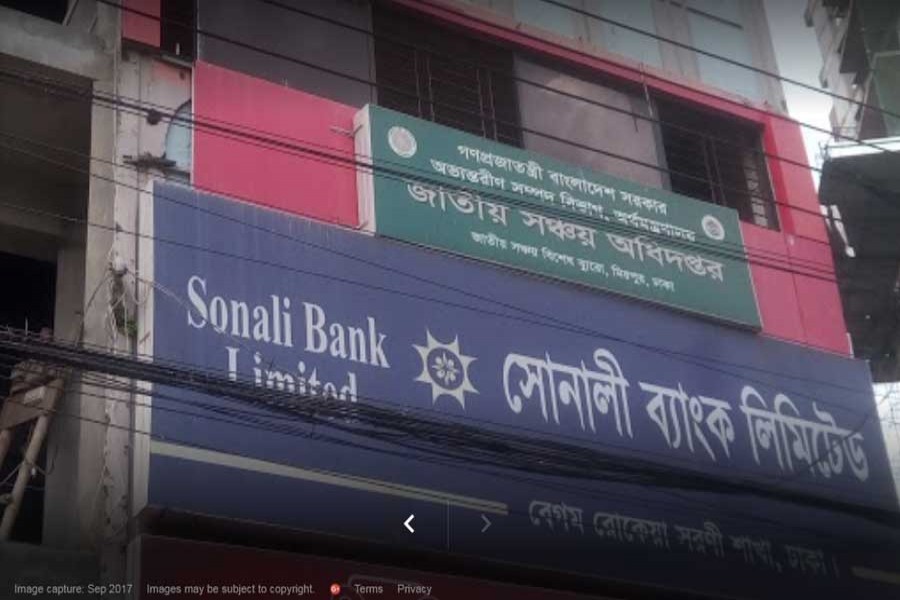Some reforms are in the offing for modernizing management of the savings instruments and converting those to a sustainable source of deficit financing by the government.
To this end, official sources said, a move is under way to create a database of the existing savings tools under the Directorate of National Savings (DNS).
Besides, overall management of the instruments will come under automation.
The finance division, recently, sent a proposal to this effect to the finance minister for his approval, they added.
The division has proposed some short-term reform measures under the DNS in the first phase.
According to the proposal, a self-sufficient central database of clients/investors in national savings certificates would be created linking with the National Identity Card under the DNS.
Updated information about investment would be uploaded after preparing the database and collecting information about investments in the high-yielding savings certificates.
Besides, a guideline will be formulated by the DNS to include the overall information of investors in the proposed database.
Currently, the DNS is under the Internal Resources Division (IRD) according to allocation of business. On the other hand, the finance division handles the administrative activities on loan affairs. For this, the DNS takes care of short-term reform activities to implement the modernization of the national savings tools.
Overall management of DNS should be brought under automation. A separate component is likely to be incorporated into the framework of Strengthening Public Expenditure Management operated by the finance division, a high official of the finance ministry said.
The main objective of the National Saving Schemes is to motivate people to save money and collect scattered small savings and mitigate national budget deficit by collecting money through saving tools.
The tools are also the source of incomes for country's particular sections of people like women, senior citizens, Bangladeshis working abroad and the physically handicapped.
It is playing an important role by reducing foreign-aid-dependence and money inflation etc.
When asked, Mohammad Muslim Chowdhury, Secretary in Charge, Finance Division, said: "We have taken short-medium and long-term plans to modernize the country's existing saving tools. Firstly, a database would be created linking it with investors' National Identity Card."
He adds: "We want to identify who are investing in the tools. Then the government will be able to understand whether the people enjoying higher interest are rich or poor."
The official noted that sometimes people cross investment ceiling by buying saving tools from different outlets. "We want to control this practice by preparing database and linking it with their national identity numbers."
Currently, savings certificates are sold through the central bank, commercial banks, post offices and the Department of National Savings (DNS).
In the last fiscal year, savings certificates worth over Tk750 billion were sold. The total investment came to Tk 336 billion in the first five months of the current fiscal year (2017-18), according to DNS data, already shooting over the year's mark.
The government has set its net borrowing target at Tk 301.50 billion through sales of savings certificates for the current fiscal year (FY) 2017-18.
Savings certificates are sold at around 17,000 outlets across the country. There are no specific data on the country's saving-tool investors from the DNS. Some tools are popular from the investors. These are: 5-year Sanchayapatra, three-monthly Sanchayapatra, Pensioner Sanchayapatra, Poribar Sanchayapatra, Postal Savings and so.
Executive Director of the Policy Research Institute of Bangladesh (PRI) Ahsan H. Mansur sees policy-and administrative challenges involving the government borrowing tools. Policy challenges are more fundamental but administrative challenges are important, the policy analyst told the FE.
"The database of savings tools is good for management and also depositors if it is implemented. That is not the solution to main problem. Main problem is policy related," he added.


